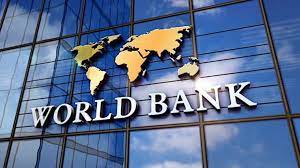Gert Grobler
The World Bank has recently described the African Continental Free Trade Area as a “game changer “which will create a single, continent-wide market that unites 54 countries with a combined population of 1.3 billion and GDP of $3.4 trillion. The AfCFTA represents a comprehensive plan which seeks to create a single, liberalized market for goods, services and labor. It will reduce barriers to trade and investment and boost competition, raising the attractiveness of Africa for regional value chains and to investors.
Achieving the AfCFTA’s full potential, however, will depend on bringing in significant policy reforms and trade facilitation measures. To unlock the untapped potential, various intra-African non-tariff barriers, including costly non-tariff measures, infrastructure gaps, and market information gaps, need to be successfully addressed. This requires continued joint efforts under the AfCFTA and many issues need to be resolved before the agreement can fully function. Negotiations in this regard are currently in full swing and the implementation of the AfCFTA is thus firmly on track. The encouraging adoption by the African Union of 2023 as the “Year of AfCFTA: Acceleration of the African Continental Free Trade Area Implementation”, is expected to generate greater political will and commitment and accelerate the effective implementation of the AfCFTA to bring increased benefits to African people. The AfCFTA will build on the progress made by the continent’s eight Regional Economic Communities under their customs unions, free trade areas and other trading arrangements.
Trading under the agreement commenced on Jan 1, 2021, after a fairly long delay mainly as a result of the impact of COVID-19. The ultimate objective is to ensure that AfCFTA is truly operational at the earliest and that the gains from the initiative lead to improved implementation in order to achieve increased inter-regional and intra-Africa trade that would yield economic development for the betterment of the continent at large. Apart from deeper integration, the enhancement of intraregional trade, infrastructure and harmonizing policies on investment, diversification, value added production, competition, e-commerce, and intellectual property rights, it is anticipated that the AfCFTA will also boost foreign direct investment, bringing in much-needed capital, technology and skills.
Despite many headwinds, trade between Africa and China jumped to a record $282 billion in 2022 and continues to grow, as a result of Beijing’s recent push to boost imports from Africa, with an 11 percent year-on-year growth. It was the second consecutive year of growth since the pandemic, which negatively affected trade in 2020. The implementation of the AfCFTA agreement is a complex and highly collaborative undertaking, which requires that Africa draws on the expertise and experience of, among others, its international partners. Africa has therefore warmly welcomed China to actively participate in the development of the AfCFTA and provide continued support to the secretariat of the AfCFTA toward the full implementation of this important initiative. With the establishment of the AfCFTA and increasing involvement of Chinese firms, China and Africa are set to utilize the AfCFTA to identify and leverage growth in sectors with high growth potential, such as green energy and power infrastructure, agriculture and the digital economy.
Apart from eliminating trade barriers and boosting intra-Africa trade, the AfCFTA will also advance trade in value-added production across all sectors of the African economy. Africa and China’s increasing constructive cooperation in boosting economic recovery, in particular, the current concrete steps introduced by China to contribute to the expansion of value-added exports from Africa to China toward balanced growth of bilateral trade, is of great importance to Africa. It further underscores the vital role that China, as Africa’s largest trading partner, plays in trade, investment and manufacturing on the African continent. The AfCFTA, an exciting new trade regime which created the world’s largest free trade area, is indeed a vital building block toward the achievement of the AU’s strategic framework, Agenda 2063, which is Africa’s blueprint and master plan for transforming Africa into the global powerhouse of the future. It is clear given the longer-term prospects of Africa’s demographics, especially its youth dividend, technology, abundance of natural resources and human ingenuity, that the international community will increasingly embrace the continental free trade area which augurs well for the future well-being and prosperity in Africa.
It is credit to Africa that at a time the world is generally experiencing a rise in trade protectionism and trade wars, the continent, over a period of five years, has taken the lead in negotiating an agreement that actually liberalizes and “opens up” trade. It is indeed an important and critical evolution in African policymaking.
The China Daily







